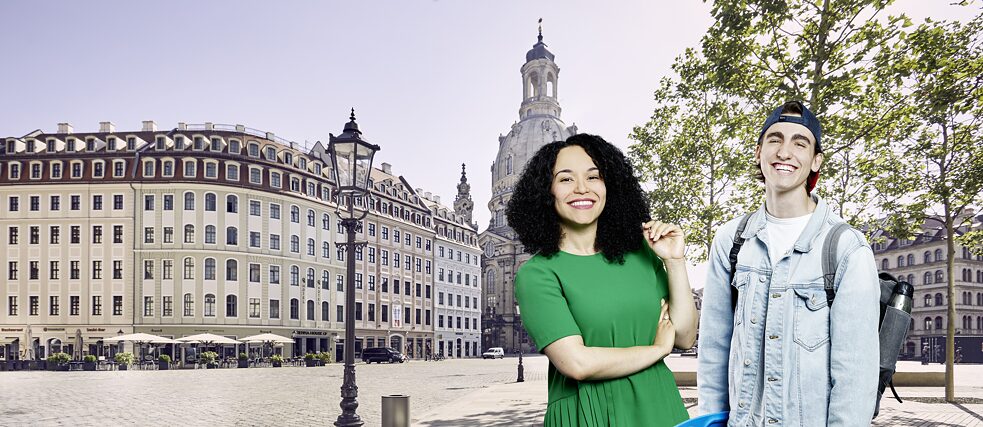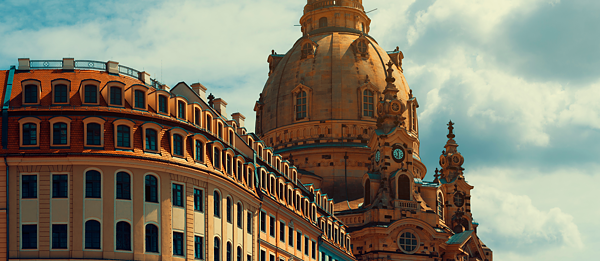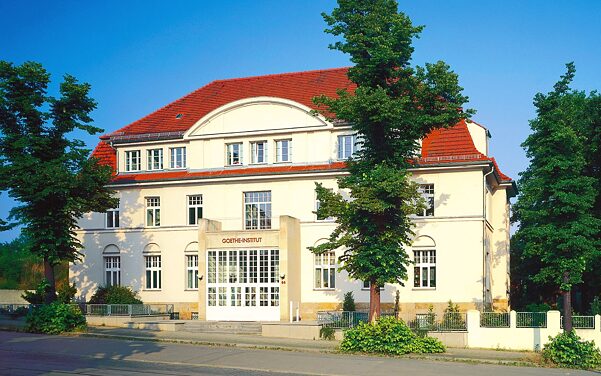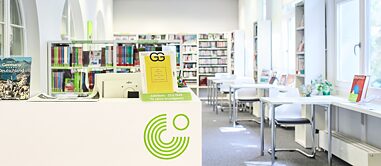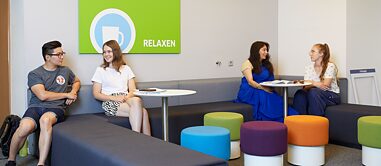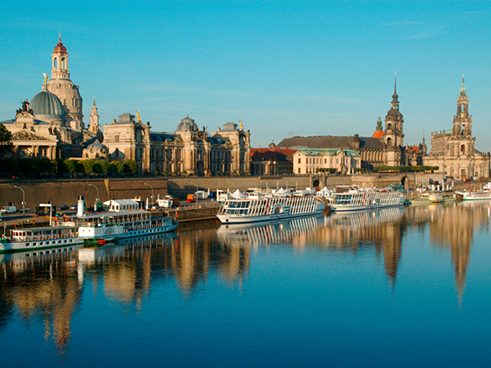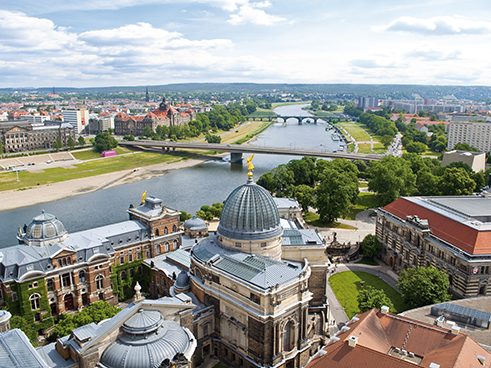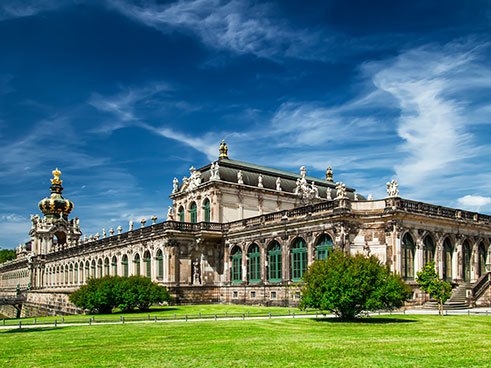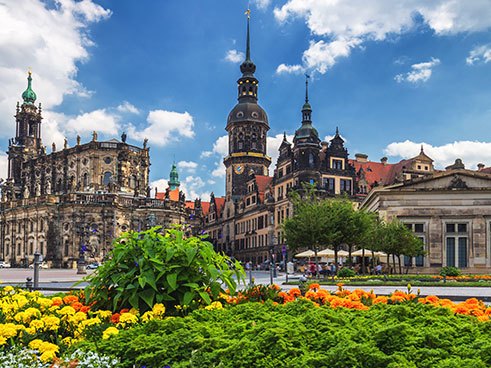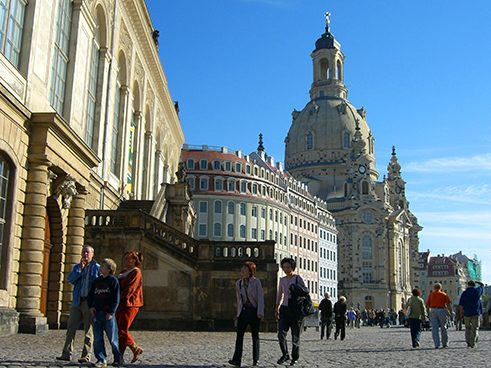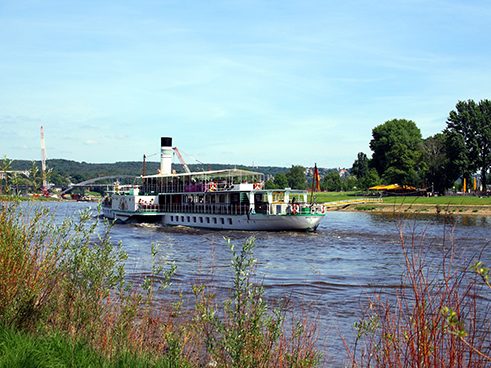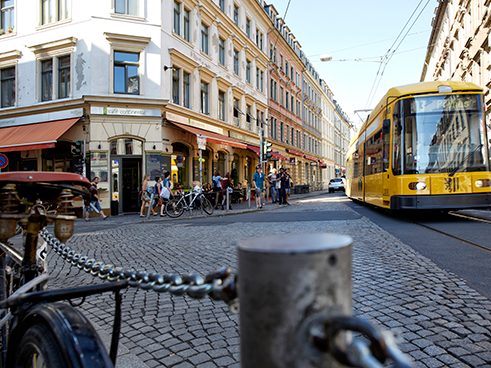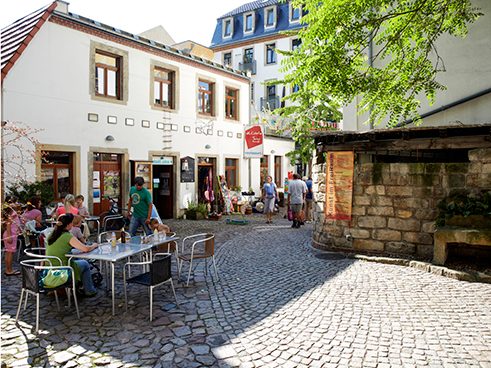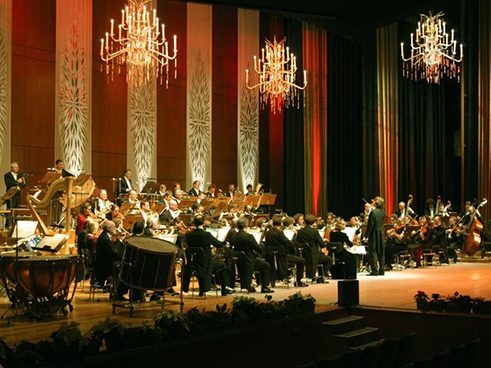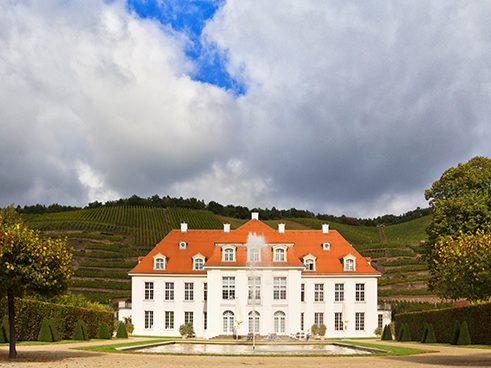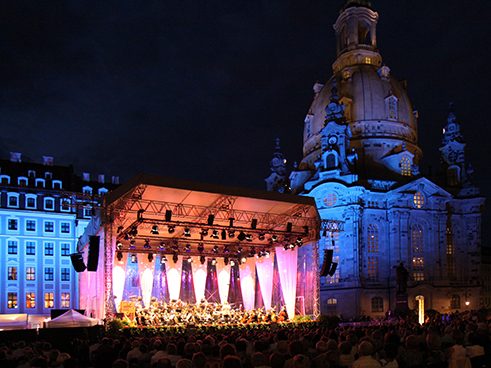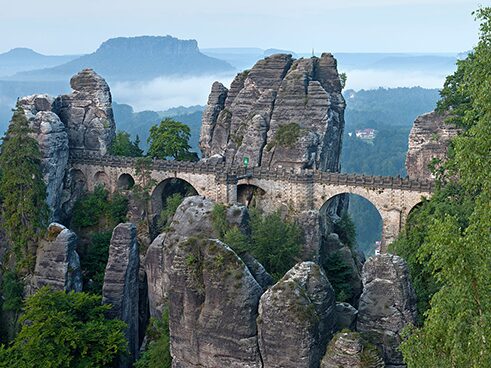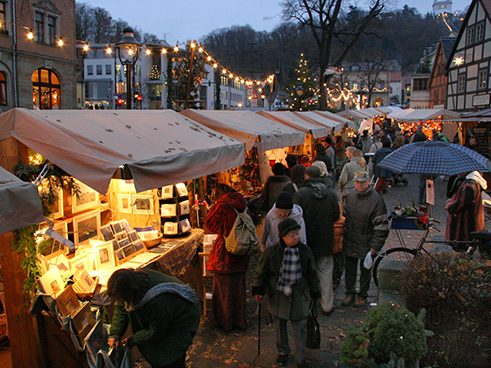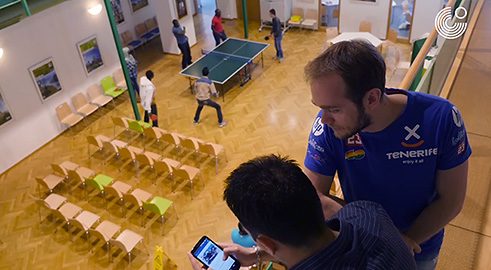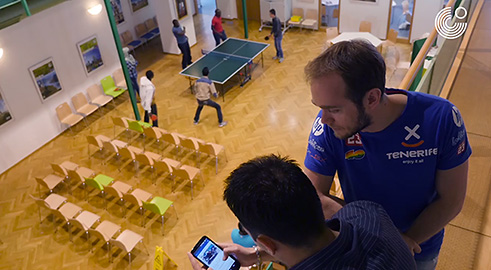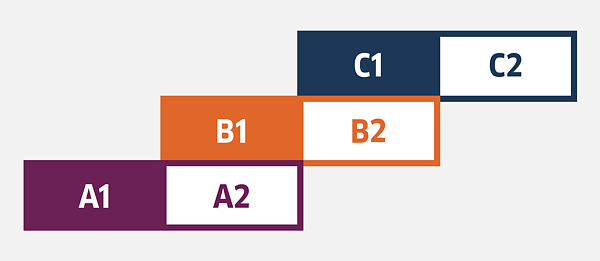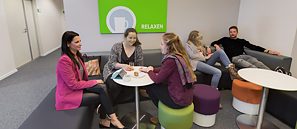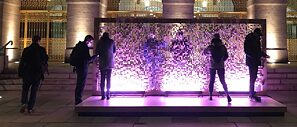Learning German in Dresden
Learning German in Dresden
Intensive course with inclusive cultural and leisure programme
Our institute in Dresden
The Goethe-Institut Dresden is situated in historical Neustadt, a young, vibrant part of town about 20 minutes on foot from the Elbe and the baroque city center. The spacious grounds of the institute include a small park with mature trees. The institute and its guesthouse are easily accessible by public transportation.
Facilities and services
- 11 well-equipped classrooms
- Media resource center
- WLAN
- Common room
- A pleasant terrace
- Accommodation
- Medical insurance (optional)
- Airport transfer (on request)
Relaxing after the German classes in Dresden
This more than 800-year-old city, once the residence of prince electors and kings, rose to cultural prominence back in the 17th century, laying the foundation for a splendid legacy that continues to draw throngs of visitors today. Due to the splendor of the baroque buildings, Dresden's first nickname became "Florence on the Elbe”. Since German reunification, Dresden has been the site of intense renovation, construction and restoration work. More than 40,000 students study at the nine institutions of higher learning in this university city, situated in a region recognized as East Germany's research and development hotbed. Companies in such industries as microelectronics, nano- and biotechnology and aerospace profit from the nearby university and various research institutes. The resulting symbiosis has earned the state the nickname, "Silicon Saxony".
German courses in Dresden
The Goethe-Institut in the lively Dresden Neustadt offers you the opportunity to combine a German course with a stay in one of the most beautiful cities in the world. You can attend an intensive course, which includes 75 hours of German lessons in 15 days.If you want to do your German course in Dresden besides your job, you can also book weekend, evening or morning courses. Take a placement test so that we can determine the right course level for you. The best way to contribute to your learning success is to use your German language skills in everyday life when you talk to the locals. For this purpose, we offer you an extensive cultural and leisure program. We can also arrange accommodation for the duration your German course in Dresden, be it in the guest houses of the Goethe-Institute, with private persons or in a hotel.
I used to find learning German really difficult and I tried lots of different things. But on the language course at the Goethe-Institut, I suddenly started making rapid progress.
Ann, 33 course participant from the US
Booking forms
You can register for German courses online in our shop and pay via Visa/Mastercard or PayPal. Customers who do not pay their course fee themselves can use our interactive booking form to register and provide us with a different billing address. Selecting your choice of course location will send the form to the course location of your choice.
